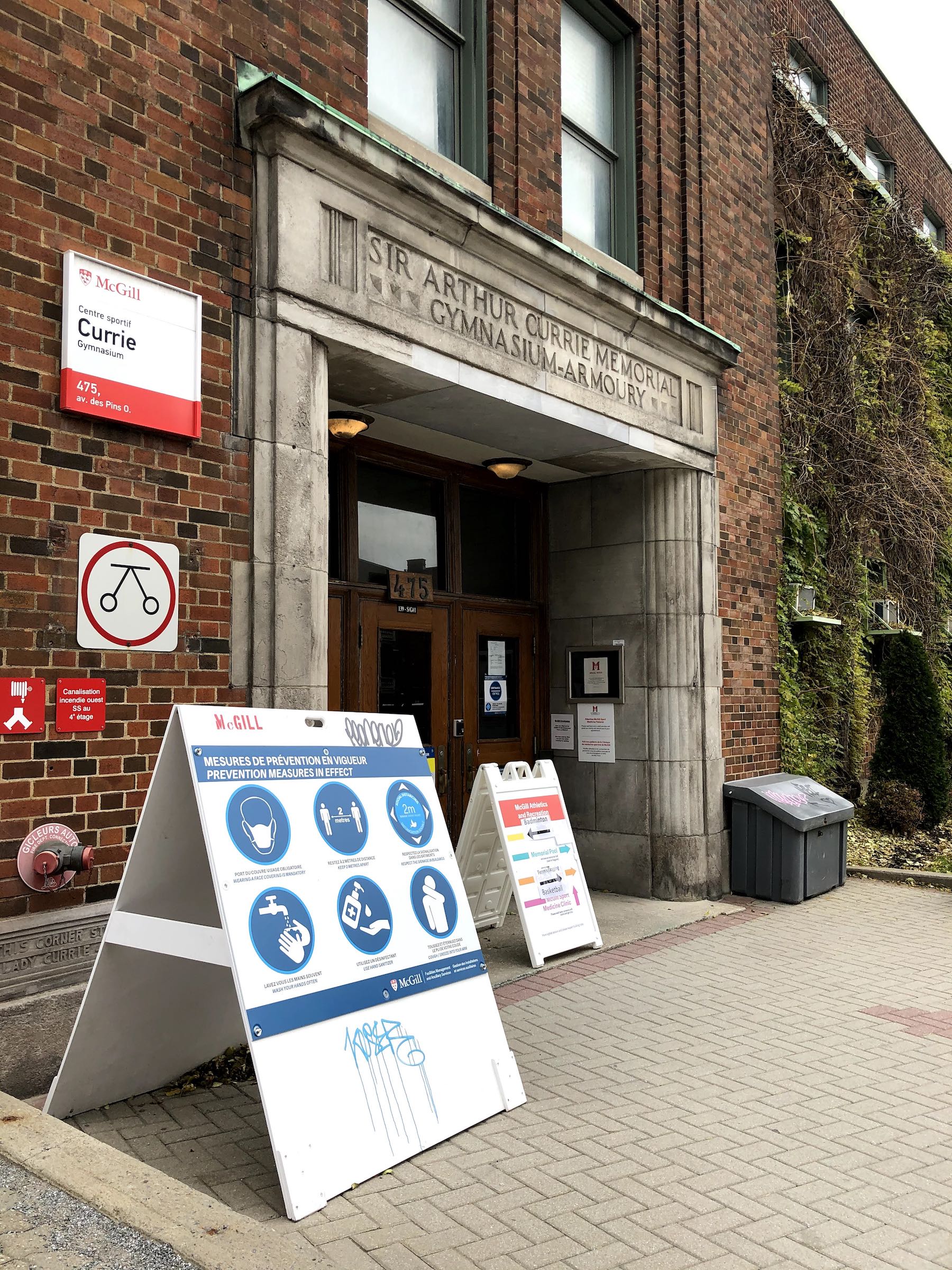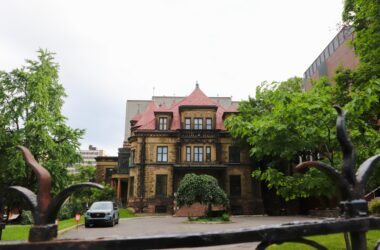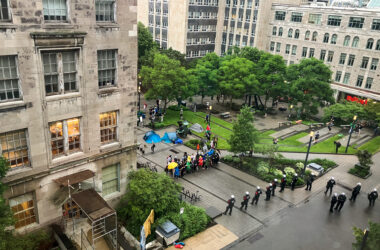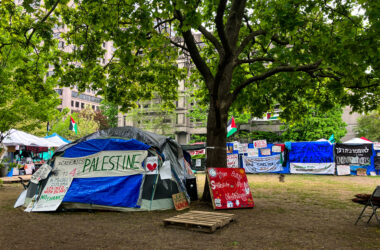The COVID-19 pandemic has affected all levels of sports at McGill, including varsity, intramurals, and recreational programs, resulting in a significant negative impact on the McGill Athletics & Recreation’s revenue stream. Quebec’s lockdown restrictions have impacted operations at both the Currie Gym and the Macdonald campus. With fewer people using the facilities and less money to allocate to teams and programs, Athletics & Recreation has had to adapt to accommodate students while respecting provincial public health guidelines.
This year, student fees, memberships and programs, facility rentals, camps, sponsorship engagements, Sports Medicine Clinic services, and other retail operations experienced a decrease in revenue. Senior Communications and Marketing Manager Stephanie Malley explained the impact of COVID-19 on Athletics & Recreation’s budget in an email to The McGill Tribune.
“While much effort has been directed toward reducing expenses through these challenging times, fixed costs including energy, cleaning, maintenance and salaries continue to be incurred,” Malley wrote. “Athletics and Recreation’s fiscal year 2020 budget will close with a large deficit that will need to be addressed over the coming years.”
To adhere to university and public health recommendations, Athletics & Recreation installed signage throughout the sports complexes to encourage proper physical distancing and have increased cleaning schedules in high-traffic areas. Athletics & Recreation staff work both on and off campus to ensure that all in-person activities are run safely and effectively. Lifeguard Robyn Nakano, U3 Arts and Science, discussed her experiences working at the Memorial Pool during the Fall 2020 semester.
“It’s been a [time of] transition,” Nakano said. “We started out originally with three guards […] which was a change from last year. Now we’re back to two guards, which is fine because we’re a small pool [….] We have had a really tough time this semester getting shifts covered because not as many people came back [to Montreal] in the fall.”
Athletics & Recreation has modified their recreation programs several times since the start of the pandemic to remain in accordance with the ever-changing public health guidelines that regulate physical activities. In the email to the Tribune, Malley elaborated on the popularity of the in-person programming at the downtown and Macdonald campus fitness centres. At the beginning of the semester, while in-person fitness classes, intramurals, and fitness centres were open, they were consistently at or near capacity. Government regulations that placed Montreal into the red zone on Oct. 1 required the department to scale back its operations.
Athletics & Recreation is still able to provide some on-campus activities, including lap swimming, indoor tennis and badminton, track running, basketball, and recreational skating. The department also added an online component to its fitness class schedule, allowing students to take up to 15 online classes for free each week. Pascal Namia, U3 Arts and Science, is grateful that McGill is continuing to offer recreational activities this semester.
“I’m glad [McGill] opened [the gym] up to allow training,” Namia wrote. “My routine was usually arms/legs followed by cardio, and I would spend all 90 minutes in the gym. I felt safe COVID-wise, but sometimes social distancing wasn’t possible in the weights section [….] Nowadays, I just play badminton in the evenings with a buddy of mine to get a sweat in [….] I’m glad that they’re still offering recreational sports, because if they don’t, I lose something I look forward to doing at the end of the week. It keeps my mental health in check.”
Additionally, the McGill Intramural Office modified its services for online delivery, offering virtual programming like E-Sports, Strava Run Club challenges, and online trivia. In-person programming included Spikeball and a Lawn Games League, though Winter 2021 intramurals have yet to be announced. Many students, like Josh Shapiro, JD ‘20, an intramural participant during previous semesters at McGill, are thankful that some activities are still being offered this semester. Shapiro, a finalist for the inaugural class of McGill’s Intramural Hall of Fame, participated in this semester’s online trivia events. He discussed what he misses most about past intramural activities in a message to the Tribune.
“I badly miss the camaraderie of teams like Jewventus, my co-rec soccer team,” Shapiro wrote. “Thanks to Rene Bondy’s efforts to continue the intramural program through the current semester, however, I have been thrilled to participate as a member of the ‘Follow @unsoliciteddishpics’ trivia team in the weekly intramural trivia.”
Varsity teams have also faced their share of obstacles this Fall. Due to the current government and league directives, no varsity team events, competitions, or in-person practices are taking place. However, many teams have still found creative ways to stay in shape, such as individual or group Zoom workouts. Martlets soccer player Tia Lore, BA ‘20, spoke to the Tribune about the challenges she encountered this semester.
“[One] challenge is just being in one place, for so long,” Lore said. “With classes, you would [go from one class] to a different class and walk outside to go to the gym [….] We’re so used to having practices every day, or that time restriction where [you have] to get this [assignment] done because [you] have practice, whereas now there’s no time restrictions, so I feel like I have to learn how to manage my time again.”
With the varsity sports season cancelled, groups like Varsity Council say they have had a hard time connecting with athletes this semester. Varsity representatives have adapted to this semester’s circumstances by moving all of the council’s social events online, promoting its events via Instagram, and looking to start a Strava account in hopes of motivating more athletes to workout. Varsity Council President Evelyn Silverson-Tokalidis, U3 Arts, highlighted the difficulties facing student-athletes due to the pandemic.
“We are a council that focusses on attending [varsity events], promoting and working with athletes, especially during their seasons,” Silverson-Tokatlidis wrote. “Now, with seasons not happening, it is hard to motivate athletes to stay social and connected during this time. It is hard to plan events and motivate a group of people to work toward a common goal when the very goal that they want to work toward has been taken away from them.”
Athletics & Recreation will continue to adhere to university and public health guidelines moving forward. For the winter semester, the focus will be on the safe return of in-person varsity activities. Looking ahead to the 2021-2022 competitive season, Athletics & Recreation’s efforts will be directed toward RSEQ schedules, hosting protocols and analyzing the delivery of in-person activities such as meetings, educational seminars and sport specific banquets.
With Montreal remaining in the red zone until Jan. 11, 2021, Athletics & Recreation will continue to adapt and improve the activities offered to students. Malley emphasized the importance of exercise for physical and mental health during the quarantine.
“The health and well-being of McGill students, coaches, staff, and sports complex members has always been a top priority for Athletics & Recreation,” Malley wrote. “In a time when more and more people are spending their day in front of a screen, our role in keeping our community moving is even more important. The correlation between exercise and mental health is well established, and we want to make sure the McGillians have a variety of outlets to relieve stress and stay healthy.”









